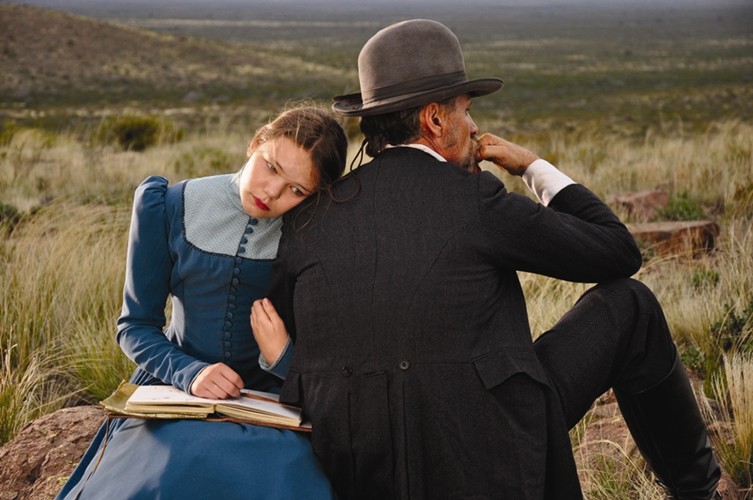Myths and legends of mythical lands and places have been predominant throughout the world since the dawn Humankind. The most famous examples are probably El Dorado, Shambhala and Shangri-La (we’re all agreed that Atlantic existed, right?). The former capital of Spanish Peru, Jauja, obtained a mythical status due to its riches; entering into Spanish folklore as a place where people can live without working. Lisandro Alonso’s film of the same name toys playfully with that theme.
Jauja is set in the late 19th century, during the Conquest of the Desert in Patagonia. Captain Gunnar Dinesen (Viggo Mortensen) arrives from Denmark with his fifteen year-old daughter Ingeborg (Viilbjørk Malling Agger) to work as an engineer in the Argentine army. She catches the eye of lascivious veteran Pittaluga (Adrián Fondari), but falls in love with a younger solider, who she runs away with. Captain Dinesen sets out in pursuit through harsh hostile country, populated by unfriendly natives and bloodthirsty bandits.
Lisandro Alonso channels the essence of Alejandro Jodorowsky at times in Jauja. It feels like it shares the same blood as El Topo. As a narrative feature it’s loose and meandering, kept adrift by a strong central performance by Mortensen. Indeed, it’s a great example of modern absurdest cinema, using myths and legends to baffle and intrigue. It’s beautifully shot in washed-out colours and framed in a style that brings to mind early cinema. Jauja is an offbeat western which draws on many of the tropes of Western mythology, whilst eschewing its bloodier side.
Jauja is out in cinemas on Friday.












No Comment